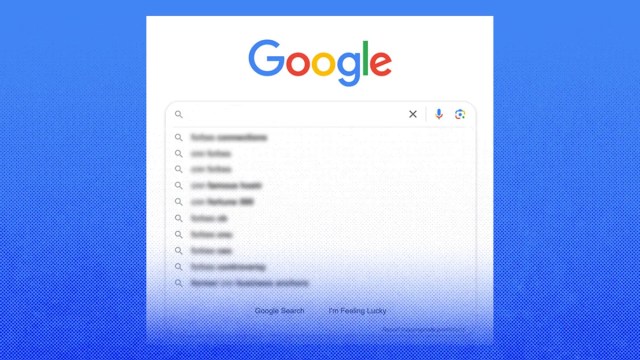News Media Alliance Urges FTC, DOJ to Investigate Google’s Site Reputation Update

The News Media Alliance, a trade association representing more than 2,200 publishers, sent an open letter to the Justice Department and the Federal Trade Commission last week urging the organizations to investigate an algorithm update released by Google earlier this year.
This update, which changed Google’s Site Reputation Abuse (SRA) policy, disrupted the affiliate activities of the industry’s leading news publishers.
The policy prohibits publishers from working with third-party vendors to create affiliate content, such as product reviews. Publishers deemed by Google to be in violation of the new policy are penalized by being demoted in search visibility, resulting in lower traffic and revenue.
However, according to the NMA and several publishers who spoke with ADWEEK, Google lacks proper transparency regarding violations and how to rectify them.
“Under this new policy, any partnerships in which media companies publish third-party content or affiliate links, regardless of editorial control and oversight, risk Google manually removing the content from ranking in search results,” NMA executive director Danielle Coffey wrote in the newspaper. letter.
“Once this happens, even by mistake,” she continued, “it can take weeks or even months for Google to remove the manual actions applied to a site and return the website to its proper state. position in search results. »
In recent months, at least a dozen publishers saw traffic to their affiliated businesses droplimiting their ability to convert buyers and generate revenue. But at least five affected publishers say the update, while well-intentioned, turned into a Kafkaesque nightmare, costing them millions in unrealized revenue and spent resources.
Four publishers said they should not have been penalized, that they are fully compliant with the new policy, and that they were punished in error. A fifth admitted to breaching the updated guidelines. But both groups say the process for appealing and overturning sanctions is frustratingly opaque, leaving publishers blindly guessing about what they need to do to lift their bans.
“Users have made it clear to us that abusing a site’s reputation, commonly known as “SEO spam,” leads to a poor search experience for searchers and an uneven playing field for content creators. Many users and website owners applauded this update. “, shared a Google spokesperson in a press release.
“We enforce our anti-spam policies through a careful and rigorous review process, and affected site owners may submit requests for reconsideration,” the spokesperson added.
Even if Google acts to protect consumers, the company must still provide a clear and timely process for publishers to appeal and overturn these bans, according to Coffey. His letter to the DOJ and FTC aims to bring the issue to the federal government’s attention, as Google is already under intense anticompetitive scrutiny.
“Google has the right to make rules,” Coffey said. “But when you abuse these rules and there is financial gain at stake, with no open process, no notice or comment, and no third party to call on, then they need to be held accountable.”
An opaque appeal process
Unfortunately, Google rarely responds to requests from website owners, according to search consultant Deborah Carver.
This is frustrating but not often catastrophic, because the company tends to exert its influence through incentives rather than sanctions, thereby rewarding publishers who follow its best practices.
But in this case, Google chose to penalize publishers who violate the SRA without offering a clear explanation for the errors the sites made or an easy way to appeal and overturn the penalty, according to Coffey.
“Google selectively targets the people it targets, and then it doesn’t adhere to its own call-out policy,” Coffey said. “Google acts here as judge, jury and executioner, all without due process.”
To appeal a penalty, publishers fill out a series of forms and then wait. Speaking on condition of anonymity, an editor told ADWEEK that his appeal was rejected, and when he asked why, Google only sent a screenshot of an article the site had published in September. Google provided no further explanation and did not respond to follow-up questions.
“There are no clues, it’s just a story,” a company executive said. “It could be the code, the links, the signatures, anything. We’re willing to consider any changes Google wants us to make, but they haven’t given us any guidelines.
According to the five publishers affected, the sanctions appeal process is incredibly opaque, so much so that it has forced several of them to take drastic measures, overhauling entire editorial processes and codebases to resolve the issue. problem without knowing what they did wrong in the first place. .
One frustrated editor decided it was easier to start from scratch, deleting more than 15,000 articles, more than three years of work, rather than continue trying to figure out what part of his content Google had found objectionable. Another sent proof of employment for all 30 employees in its affiliated division to prove they worked in-house rather than with third parties.
The financial burden of this ordeal has led several publishers to question whether or not affiliate businesses are a viable business, particularly whether a valuable business can be wiped from the Internet at any time and without a clear explanation of why.
“What more can we do than show them our policies, our employee files, our signatures? » declared the executive. “We are sitting here ready and willing to make changes.”




